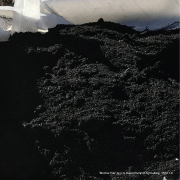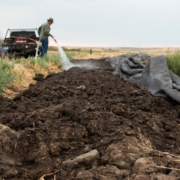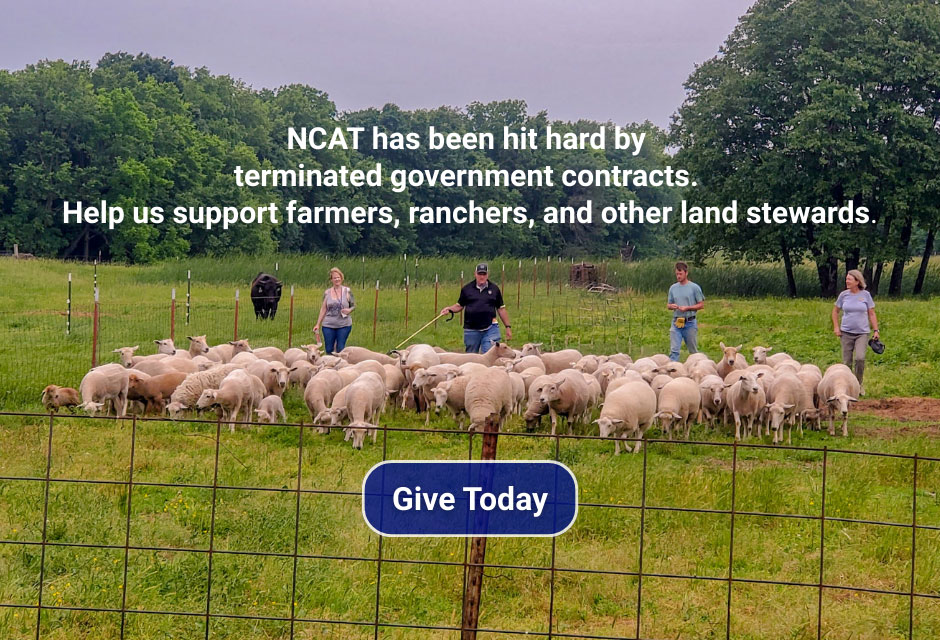Leading Agricultural Organizations Say Biochar Promise Can Be Realized When Government, Research, NGOs and Industry Come Together
American Farmland Trust, the National Center for Appropriate Technology and the U.S. Biochar Initiative today released Recommendations to Scale Up Sustainable Biochar Research and Commercialization for Agriculture and Conservation, which outlines actions to facilitate the development of a sustainable industry to supply biochar as a crop and grazing land amendment for farmers. Investment in research, production capacity, market mechanisms, outreach, and education will facilitate the broader application of biochar on farms and secure benefits for agriculture along with the delivery of renewable energy as a coproduct.
In March 2022, Foundation for Food and Agriculture Research (FFAR), NCAT and AFT hosted a two-day virtual event on biochar research and commercialization. Discussions reflected broad agreement that building a pyrolysis biochar and bioenergy industry is a promising near-term strategy for carbon removal. Sustainable fit-for-purpose biochar integrated in soil health management systems has potential to address climate change, build productivity and resilience of farms and forests, and create jobs and opportunity across rural America. Chuck Hassebrook, Director of NCAT’s Biochar Policy Project said, “There is great opportunity to build a biochar and biofuel industry that enhances soil health, sequesters carbon, improves farm and forest income, and creates jobs and opportunity across rural America. But federal investment in research and development is needed to unlock that opportunity.”
Building a sustainable pyrolysis biochar bioenergy industry will require a coordinated, multi-faceted strategy. Supportive public policy is needed to prompt investment in production capacity and market development. Convening participants stressed that commercially relevant results are needed during the next five years. Rachel Seman-Varner, Senior Scientist at AFT said, “Current barriers limit the widespread production and use of biochar, and therefore the realization of the full potential climate adaptation and mitigation benefits of the practice. Key barriers can be addressed with a cross-agency, multi-stakeholder approach outlined with these recommendations.”
This white paper presents four core policy recommendations derived from the convening.
- Coordinated Biochar Research Initiative – A coordinated research approach is recommended that includes cross-site and site-specific research to understand the interactions between various biochars, soils, crops, management, and weather as proposed in the Biochar Research Network Act introduced recently in Congress.
- Biochar Outreach, Extension and Education – In order to scale up biochar use, gaps in knowledge need to be filled by outreach, extension and education organizations to support farmer-to-farmer knowledge exchange, on-farm demonstration trials, development of decision support tools, public-private partnerships to support biochar adoption, and knowledge transfer.
- Support of Commercialization of Biochar & Development of a Sustainable Biochar & Biofuel Industry – Developing a sustainable biochar biofuel industry will require strategic incentives and investments – we cannot wait for production and markets to align.
- Cross Agency Action Plan – This white paper outlines detailed recommendations for cross agency actions among USDA, DOE, EPA, and other agencies to address policy barriers to biochar adoption.
Tom Miles, Executive Director of US Biochar Initiative said, “Biochars and biochar-amended products are being used productively in agriculture today. Improved outreach, government incentives, and long-term research are needed to stimulate investment, scale production, and validate long-term agronomic and environmental benefits.”
We cannot wait 50 years to realize the potential of biochar. We present these policy recommendations to meet that challenge.
To view the recorded convening and summary paper along with additional biochar resources, visit the convening webpage on AFT’s Farmland Information Center.
American Farmland Trust is the only national organization that takes a holistic approach to agriculture, focusing on the land itself, the agricultural practices used on that land, and the farmers and ranchers who do the work. AFT launched the conservation agriculture movement and continues to raise public awareness through our No Farms, No Food message. Since our founding in 1980, AFT has helped permanently protect over 7 million acres of agricultural lands, advanced environmentally-sound farming practices on a half million additional acres and supported thousands of farm families. www.farmland.org
CONTACT: Lori Sallet, E: lsallet@farmland.org ● P: (410) 708-5940
##
THE NATIONAL CENTER FOR APPROPRIATE TECHNOLOGY has been helping people build resilient communities through local and sustainable solutions that reduce poverty, strengthen self-reliance, and protect natural resources since 1976. Headquartered in Butte, Montana, NCAT has field offices in Arkansas, California, Colorado, Idaho, Kentucky, Mississippi, Montana, New Hampshire, New Jersey, Pennsylvania, and Texas. Learn more and become a friend of NCAT at NCAT.ORG
CONTACT: Emilie Ritter, E: emilier@ncat.org
##
US Biochar Initiative promotes the safe, stable, and sustainable production and us of biochar through research, policy, technology, and implementation. Join our network and the growing biochar industry to share findings and best practices that improve soil health and productivity while removing carbon from the atmosphere.
CONTACT: John Webster E: info@biochar-us.org ● P: (801) 870-2465

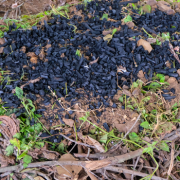
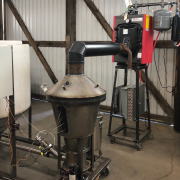
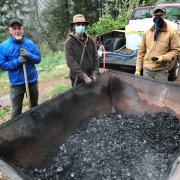 Courtesy
Courtesy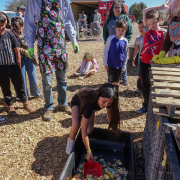 Courtesy Carol Ann Fugali
Courtesy Carol Ann Fugali